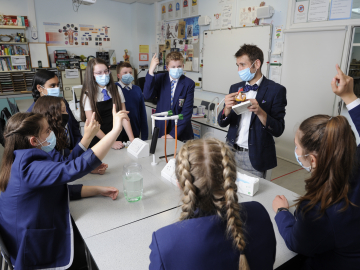Answers to Gun Violence in the Americas
CHICAGO – Something’s wrong in the Americas: More than half of the world’s 251,000 gun deaths occur in just 6 countries: Brazil, the US, Mexico, Colombia, Venezuela and Guatemala.
In addition, 47 of the 50 most violent cities in the world are in North and South America.
Experts from the U.S., Mexico and Colombia shared even more depressing data points during a Sunday morning session at the Consortium of Universities for Global Health. In Chicago in 2016, there were 769 homicides. In Medellin, Colombia in 1991, 6349 people were killed. From 2000 through 2018, Mexico suffered 350,000 homicides.
Gun violence has left deep scars across Mexico, said Arturo Cervantes, chair of Public Health at Anahuac University in Mexico. More than a third of Mexican households have been affected by gun violence. 30% of all people over 18 have been victimized, he said.
Cervantes excoriated his neighbor to the north for virtually unchecked exports of guns to Mexico. 30,000 weapons are seized every year coming into the country, which has strict gun ownership laws, he said. And that’s perhaps only 10% of the guns coming into the country.
“Your U.S. guns are causing murder, suicide, crime, delinquency, kidnapping and crimes against humanity,” Cervantes said. “The US government should be sued because they are a nuisance to the public in the region.”
Others on the panel shared encouraging responses to the devastation wreaked by guns. The strongest example came from Oscar Santiago Uribe Rocha, chief resilience officer for the City of Medellin. Dogged efforts over decades brought the city back from its early 1990s reputation as the most violent city in the world. Then, it had a homicide rate of 381 per 100,000 population. (By comparison, Chicago’s 2017 homicide rate was 24 per 100,000.)
Uribe Rocha blamed the violence’s origins on a failure of investment in poor areas of the city that left many without access to jobs, health services, transportation and other infrastructure enjoyed by the privileged. This bred desperation and violence.
“Whatever happens there is going to affect all of us,” he said.
Successive mayors confronted the problem by listening to communities’ needs and following up with investment in urban areas, building hospitals, integrated transportation services, schools, community centers and cultural centers that also helped provide jobs, he said.
“Opportunities are at the heart of tackling this issue of violence in any city of the world,” Uribe Rocha said.
In Chicago, the organization Readi Chicago has targeted young men at high-risk of being victims of gun violence with jobs, support services and cognitive behavioral therapy. Launched in September 2017, the effort has connected 380 men with work opportunities, said Evelyn Diaz, President/CEO of Heartland Alliance, an umbrella organization that includes Readi Chicago.
Outreach workers go door to door and use social media to contact those at risk, build trust and lead them to the 18-month paid-work program. Fully 83% of the men in the program have lost a family member to gun violence, Diaz said.
The Readi Chicago team was surprised that 72% of those contacted agreed to participate in the program and have a 60% retention rate.
It’s too early to say whether the program has had protective effects for the participants but Diaz said she knows they have found the right population. “We are hyper targeting the people really involved with the violence,” she said. “We are going to the heart of the problem.”
Uribe Rocha echoed Diaz’s hopeful sentiments by quoting Hemingway: “The world breaks everyone, and afterward many are strong at the broken places.”
Join the tens of thousands of subscribers who rely on Global Health NOW summaries and exclusive articles for the latest public health news. Sign up for our free weekday enewsletter, and please share the link with friends and colleagues: http://www.globalhealthnow.org/subscribe.html
Gun violence experts share data and answers at #CUGH2019. (Image: Brian W. Simpson)





